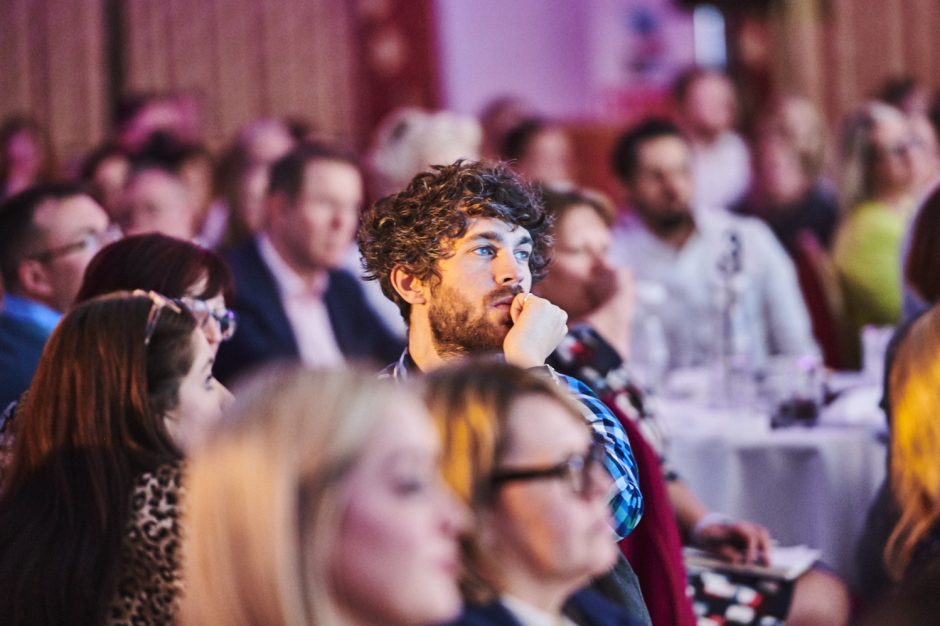Five years ago, Midcounties Co-operative changed some of the ways it supported its trading communities. The biggest change? Moving from having one large charity partner to supporting hundreds of organisations, chosen by members, customers and colleagues.
“In 2015 we set up a programme called Regional Communities. Regional Communities helps us help members on a local basis,” said Pete Westall, chief values officer at Midcounties.
“It would be quite easy for an organisation of our size to just support one national charity. We’ve done that really successfully in the past with charities such as Teenage Cancer Trust, Dogs for the Disabled and Women’s Aid. We’ve raised fortunes and have spent a lot of time and effort helping to promote the message of those great organisations. Nobody would knock us for doing that. But our members and our colleagues said they wanted us to do something different. They wanted us to make a local difference in the communities where we trade and where we live. So that’s why Regional Communities was set up.”
Regional Communities is a focused, measured approach to supporting communities in an identified geographical location where the society has a strong trading presence. Mr Westall was speaking at Midcounties’ Regional Communities celebration, held annually to acknowledge the colleagues and charity partners involved in the initiative. Following a day of practical workshops on subjects such as media engagement and fundraising, the evening gala dinner showcased some of the work being done and saw awards being presented to colleagues across the society’s different trading areas.
“We’re a member-owned organisation. And as a member-owned organisation, we live and breathe what our members wanted us to do,” he added. Over 11,000 of those members have told the society which causes they want to support. Since 2015, Midcounties has raised over £430,000 for charity partners in its six regional communities: Oxford, Swindon, Shropshire, West Midlands, Wyre Forest and Gloucestershire.
One of those charity partners is Aspire, which helps over 2,000 people facing homelessness and disadvantage across Oxfordshire and Buckinghamshire to find employment and housing. The support is focused around each individual’s needs, and provides work experience, one-to-one employment support, work placements, housing and homelessness prevention support and links to paid jobs – all of which is directly reducing homelessness, reoffending and poverty.
Helen Mariner from Aspire explained how Midcounties’ Oxford Regional Community provided work experience placements and took part in fundraising. “Colleagues have taken part in sponsored challenges,” she said. “We have benefited from the carrier bag funds and have raised money in stores too, which helped raise our brand. A Midcounties team also took part in a sleep-out last July, which was a really powerful way to give people even a very small insight to the realities of sleeping rough.”
The partnership has raised over £10,000, which for small to medium charity “makes huge impacts”.
“This has gone directly towards supporting more people into employment supporting more people into housing, really creating that sustainable difference to people’s lives,” added Ms Mariner.

The event heard other powerful stories too, from charity partners such as Riding for the Disabled and Mase Groups (The Monthly Alzheimer’s Support Evening Groups). The Mase Groups offer carers friendship and helps them to build up networks of support to help them on their journey with dementia, and are run totally by volunteers.
The different Regional Communities also work with several schools, including Codsall Community High School in South Staffordshire. Megan Stoves and Kelly Ornsby are the school’s ambassadors of community and are part of Midcounties’ Young Co-operators Network, an interactive group of young members coming together digitally and in person to answer questions about the society which would benefit from a young person’s opinion.
“We deal with bridging the gap between the school and the community, attending the co-op’s meetings, talking about charity events that we can do to raise money for the community,” says Ms Stoves.
Ms Ornsby adds: “Midcounties then supports us at events such as the tea parties we hold every Christmas, Easter and summer that bridge the gap between the generations. Midcounties provide us with tea, coffee and raffle prizes, which really help. They are also supporting the school’s period poverty campaign, and provide foodbank collection bins.”
Midcounties chief executive, Phil Ponsonby, said at the event: “I think the world around us is changing, and it’s changing fast. In some respects it’s changing for the better. In other ways, it’s not.” He highlighted how there are now 2,000 foodbanks in the UK – more than the number of McDonald’s restaurants – and how in the last five years there has been a 75% increase in food parcels distributed. There are up to 6,000 people night sleeping rough while 330,000 people are technically homeless, including 135,000 children.
“Some of these are social challenges that businesses can help to face into,” said Mr Ponsonby. “One of the fundamental points for us as a business is that we must be brave. I think we are being brave and I think some of the things we’ve done as an organisation over the last few years really accentuate that, but we’ve got to go further.”
For Midcounties, creating the platform, and the opportunities for colleagues to get involved and help people, is important. “The one thing that I’ve learned going out and about with our colleagues is that they don’t do this work because of KPIs, policies, targets or job descriptions, they genuinely want to. I’ve been truly humbled by some of the things I’ve seen,” said Mr Ponsonby.
He called on colleagues and charity partners to continue to “work with us to be more strategic and truly make a difference for long term. How can we create opportunities and legacies? How can we work with your communities to help people, using the resources that are there?”

